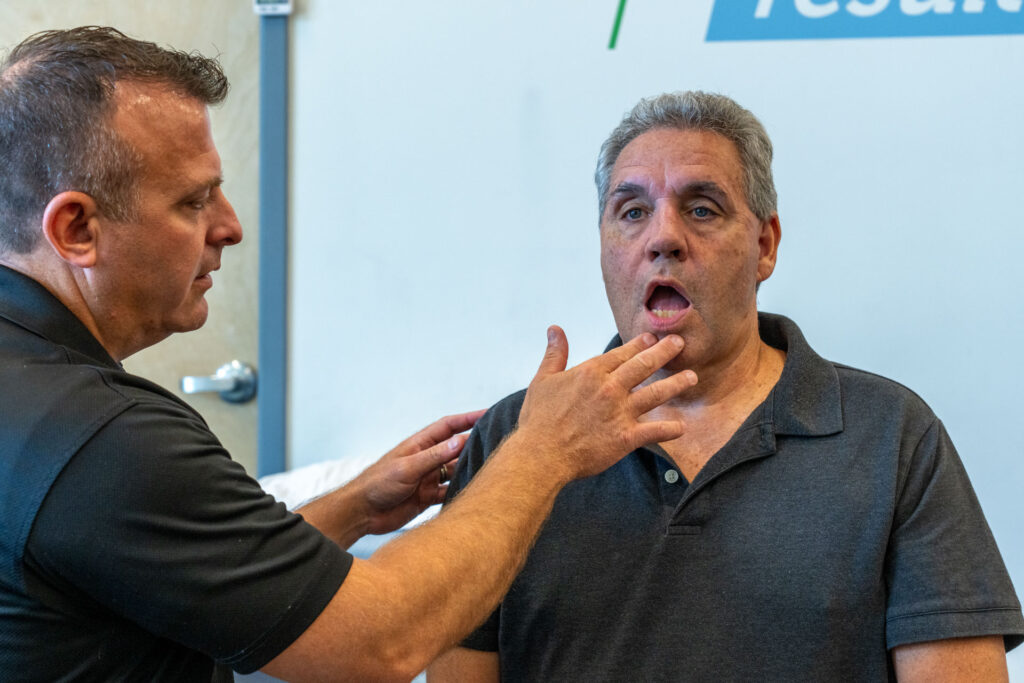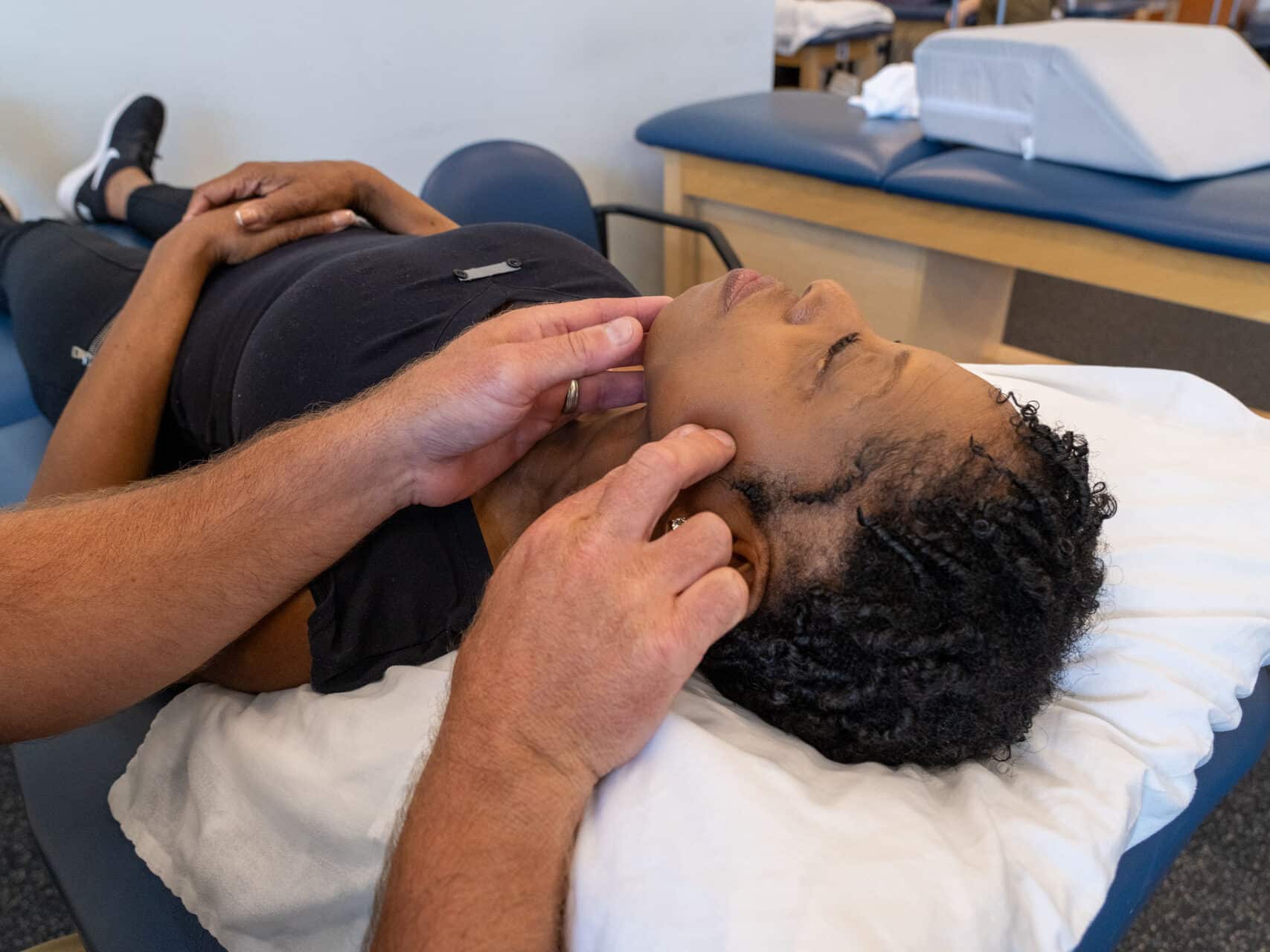
Temporomandibular Joint and Muscle (TMJ) Therapy
Temporomandibular joint and muscle disorders (TMJ) refer to a range of conditions affecting the jaw muscles and the jaw joints. These disorders can lead to discomfort and pain around the mouth, jaw, neck, and ears. At Ivy Rehab, we provide specialized TMJ therapy aimed at relieving jaw pain, improving jaw movement, and restoring normal function.
How TMJ treatment works.
TMJ disorders affect the temporomandibular joint (TMJ), which connects the lower jaw (mandible) to the skull. This joint plays a crucial role in jaw movement, such as chewing, speaking, and yawning. When this joint or the surrounding muscles are strained or misaligned, it can lead to pain, discomfort, and a reduction in your quality of life.
While TMJ conditions are often not considered serious, they can cause long-lasting symptoms that affect everyday activities. Our physical therapists at Ivy Rehab are trained in TMJ therapy to help manage these symptoms and improve jaw function.

Symptoms of TMJ Dysfunction
TMJ disorders can manifest in a variety of symptoms, affecting the jaw muscles and surrounding tissues. Common symptoms of TMD (temporomandibular disorders) include:
- Pain in and around the jaw area
- Clicking or popping sounds in the jaw when opening or closing the mouth
- Headaches, especially around the temples
- Locking of the jaw (difficulty opening or closing the mouth)
- Jaw tightness or discomfort while chewing or speaking
- Neck or cervical discomfort due to poor jaw alignment
These symptoms can range from mild to severe and can significantly impact daily activities. If you’re experiencing any of these issues, TMJ therapy can help you find relief.
How Ivy Rehab Treats TMJ Disorders
Our TMJ treatment plan involves a combination of techniques designed to reduce jaw pain, improve jaw movement, and relieve tension in the surrounding muscles. We utilize a personalized approach to ensure the most effective treatment for each patient’s needs.
Neuromuscular Re-Education
- This therapy helps restore normal jaw movement by retraining the muscles around the temporomandibular joint (TMJ) to function correctly and relieve jaw tension.
Manual Techniques
- We use manual therapy to help reduce pain and improve mobility in the jaw joint. Techniques like soft tissue mobilization can help relieve muscle tightness and improve overall function.
Ultrasound, Electric Stimulation, and Heat/Ice Treatment
- These modalities are used to reduce inflammation, improve blood circulation, and relieve pain. Heat and ice can be applied to reduce swelling, while electric stimulation can promote muscle relaxation and alleviate jaw discomfort.
Jaw Exercises
- Jaw exercises are a key part of your treatment plan. They help strengthen the muscles surrounding the jaw, improving posture and movement. These exercises can help alleviate symptoms of TMD and prevent future jaw issues.
FAQs
How long does TMJ therapy take to work?
The length of time to see results from TMJ therapy varies based on the severity of your condition. Many patients begin to feel relief within a few sessions, while others may need several weeks of treatment. Our physical therapists will tailor a treatment plan to help you achieve the best results in the shortest time possible.
Is TMJ therapy safe for all patients?
Yes, TMJ therapy is safe for most patients, including those with chronic jaw pain, muscle tension, or jaw mobility issues. Your physical therapist will evaluate your symptoms and develop a treatment plan that is appropriate for your specific needs.
What is TMJ dysfunction?
TMJ dysfunction (also known as TMD) refers to a disorder of the temporomandibular joint (TMJ), which connects the jaw to the skull. It can cause pain, discomfort, and issues with jaw movement, often resulting in symptoms like jaw pain, headaches, and jaw clicking.

Get Started with TMJ Therapy at Ivy Rehab
Relieving jaw pain and improving function takes time and specialized care. At Ivy Rehab, we provide compassionate TMJ therapy to help individuals reduce jaw discomfort, improve jaw movement, and relieve muscle tension. Our skilled therapists work with you to develop a personalized treatment plan to address your symptoms and help you regain comfort and function in daily activities.

